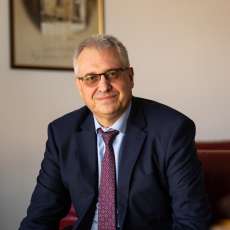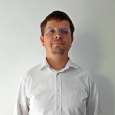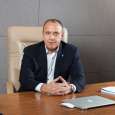Siemens is a global technology company focused on the areas of electrification, automation and digitalization. The company has been present in Romania since 1905 and its local capabilities include four factories and four local research and development centers with a total of 2,200 employees.
Siemens helped implement the first and only renewable energy storage system in Romania. How do you see this sector evolving in the near future?
Storage is becoming increasingly important primarily because of changes in power generation structures and also consumption habits. Compared to previous times when production was done in big, centralized structures, the trend now is towards decentralization. More specifically, consumers are developing production capabilities and from a grid perspective we need to figure out the best ways to manage this distributed production and consumption. It is particularly challenging because energy is not typically used in the same time as it is produced, so storage is becoming a real necessity.
This has not become very visible in Romania yet but it is a reality in many countries around the world. For the time being technology involves higher costs, but the prices will no doubt be pushed down as storage systems start to be implemented on a large scale. If we consider photovoltaic panels, their prices have decreased by 80% compared to five years ago, directly linked to their broad implementation. It is difficult to say when storage will become common in Romania - a support scheme may be required in order to speed up the process, similar to what happened in other areas of renewable energy.
The company’s strategy is presently focused on digitalization and smart solutions. What can you tell us about the level of adoption of such technologies in Romania?
Smart factories are already a reality, for example in Romania we have worked together with a gearbox producer and they are now operating one of the most advanced factories in the country. When it comes to smart cities, the best way to design the concept is in terms of their citizens quality of life, whether we are talking about traffic, pollution or healthcare. This is what drives the trend, and there are many cities in Romania that have implemented projects that can be seen as elements of a smart city. It is difficult though to say when a city has become truly smart, because there will always be room for further developments given that we continuously innovate.
In the energy sector the focus is on smart grids, which still pose several challenges. The most important one has to do with integrating the decentralized production and consumption mentioned previously. Prosumers produce when they can and consume when they need to - smart metering has started being implemented, and this is a key element because it allows us to identify patterns and figure out the best ways to manage and balance the grid.
What are the main challenges you are noticing in the Romanian business environment and the solutions you envision?
Any healthy business environment is rooted in stability and predictability, areas in which Romania, unfortunately, falls short sometimes. The reason likely has to do with the fact that some of the key decision makers in the country are not genuine experts in their activity area. I have no doubt change will come, but it will happen in time, as generations start changing and leadership is taken over by people that are better qualified.






